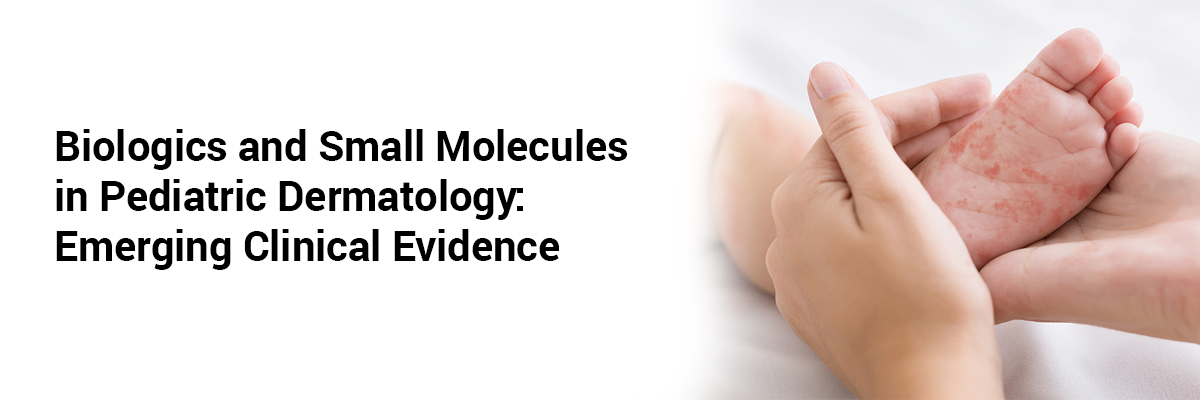
Biologics and Small Molecules in Pediatric Dermatology: Emerging Clinical Evidence
Recent
treatments for skin diseases in children and teens include biologics and small
molecule inhibitors (SMIs). These therapies work by targeting specific
inflammation pathways and may improve outcomes in conditions like atopic
dermatitis, psoriasis and alopecia areata.
A
recent systematic review evaluated
the effectiveness and safety of biologics and small molecule inhibitors in
treating dermatologic conditions in children and adolescents. The review
analyzed randomized clinical trials, patient demographics, treatment protocols,
outcomes, adverse events, and follow-up, using the Cochrane Risk of Bias Tool
(RoB2).
Out
of 1,454 studies screened, 49 met the inclusion criteria, covering 6,372
pediatric cases. The review found that biologics like Dupilumab and JAK
inhibitors such as Abrocitinib and Upadacitinib showed notable efficacy,
especially in atopic dermatitis and psoriasis. Dupilumab, in particular, led to
marked improvements in disease severity and quality of life. Most adverse
events were mild to moderate, though some serious events were reported with
specific treatments.
Key Findings
· 49 studies were included from an initial pool of 1,454, involving 6,372 pediatric patients.
· Biologics like Dupilumab and JAK inhibitors (Abrocitinib, Upadacitinib) showed strong efficacy, particularly for atopic dermatitis and psoriasis.
· Dupilumab led to significant improvements in both disease severity and quality of life.
· Most adverse events were mild to moderate.
· Some treatments were associated with serious adverse events.
To
conclude, the study revealed that Biologics and SMIs show promise as therapeutic options in
paediatric dermatology, offering better efficacy than traditional treatments.
However, further research is needed to verify long-term safety and include a
broader range of patient demographics and dermatological conditions.
(Source: Inflammopharmacol 33, 1617–1672 (2025). https://doi.org/10.1007/s10787-025-01675-4)













Please login to comment on this article